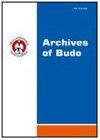Specific exercise testing in judo athletes
IF 1.5
3区 医学
Q3 SPORT SCIENCES
引用次数: 20
Abstract
Background All-out exercise tests lasting the duration of a judo match, i.e., 5 minutes, regarding arm and leg performance have barely been introduced. We hypothesised that, besides body composition, arm and leg performance, derived from 5 minutes lasting all-out ergometric tests, would be of importance for success in judo competitions. Material/Methods: The groups investigated consisted of eight juvenile (15.3±0.9 years) and six adult (25.2±4.9 years) male Austrian judokas of different ranks. In addition to body composition, power output and peak oxygen uptake (VO2peak) were determined during 5-min all-out tests on an arm crank and a cycle ergometer. Results: Relative VO2peak during cranking was about 18% higher in juvenile than in adult men (35.5±4.3 ml∙kg–1∙min–1 vs. 30.0±3.5 ml∙kg–1∙min–1, p≤0.05). However, neither body composition nor arm and leg performance was related to competition success in juvenile judo athletes. In contrast, in adult judokas percentage of body fat (r=–0.83) and relative maximum arm power (r=0.83) were both related to competition rank (p≤0.05). Conclusions: As these results indicate age-related differences in the assessed determinants of success for judo competition performance, they may have practical importance and should be considered in planning the training for male judo athletes of different age classes.柔道运动员专项运动测试
背景:在柔道比赛中持续5分钟的全面运动测试,关于手臂和腿部的表现几乎没有被介绍过。我们假设,除了身体组成,手臂和腿部的表现,从持续5分钟的全面人体机能测试中得出,将是柔道比赛成功的重要因素。材料/方法:调查组为不同等级的成年奥地利男性柔道运动员8名(15.3±0.9岁)和6名(25.2±4.9岁)。除了身体组成外,在手臂曲柄和循环测功仪上进行的5分钟全力测试中,还测量了功率输出和峰值摄氧量(vo2峰值)。结果:青少年在启动时的相对vo2峰值比成年男性高约18%(35.5±4.3 ml∙kg-1∙min-1 vs 30.0±3.5 ml∙kg-1∙min-1, p≤0.05)。然而,青少年柔道运动员的身体组成和胳膊和腿的表现与比赛成功无关。成人柔道运动员体脂率(r= -0.83)和相对最大臂力(r=0.83)均与比赛等级相关(p≤0.05)。结论:本研究结果显示柔道比赛成绩成功的决定因素存在年龄相关的差异,这可能具有实际意义,应在规划不同年龄组男子柔道运动员的训练时予以考虑。
本文章由计算机程序翻译,如有差异,请以英文原文为准。
求助全文
约1分钟内获得全文
求助全文
来源期刊

Archives of Budo
SPORT SCIENCES-
CiteScore
2.80
自引率
47.60%
发文量
0
审稿时长
>12 weeks
期刊介绍:
Archives of Budo is an international peer reviewed journal publishing articles on various aspects of the sports sciences covering education and research in martial arts and combat sports, and related areas like biomechanics, kinesiology, medicine, psychology, sociology, technologies of sports equipment, research in training, selection, performance, survival, and other interdisciplinary perspectives.
Archives of Budo editors endorse the principles embodied in the Helsinki Declaration and expect that all research involving humans has been performed in accordance with these principles. All human studies must have been approved by the investigator''s Institutional Review Board. A copy of the relevant documentation should be included with the manuscript. Furthermore Archives of Budo follows the ICMJE''s Recommendations for the Conduct, Reporting, Editing and Publication of Scholarly Work in Medical Journals.
Archives of Budo provides free, immediate and permanent online access to the full text of all articles distributed under the terms of the Creative Commons Attribution Non-commercial License http://creativecommons.org/licenses/by-nc/4.0), which permits use, distribution, and reproduction in any medium, provided the original work is properly cited, the use is non-commercial and is otherwise in compliance with the license.
 求助内容:
求助内容: 应助结果提醒方式:
应助结果提醒方式:


